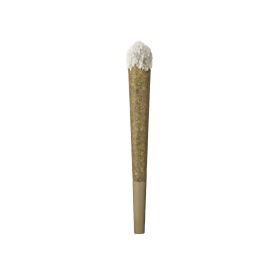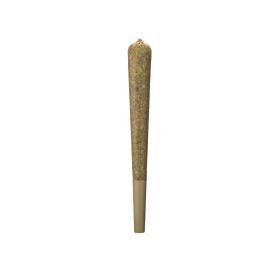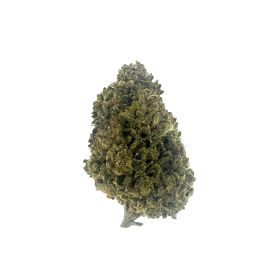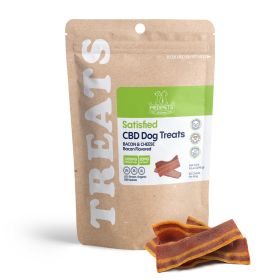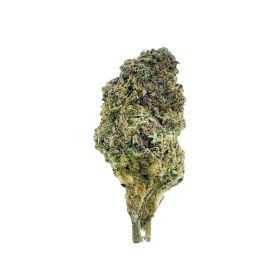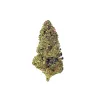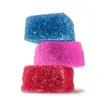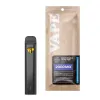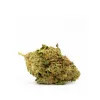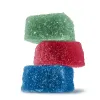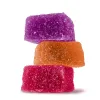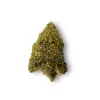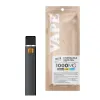Delta 9 THC is the most classic of all cannabinoids. When the hippies were going off on the trippy benefits of cannabis, this is the stuff they were talking about. As a matter of fact, delta 9 is the compound that comes to mind when people think of the munchies and the giggles.
Following Congress's legalization of hemp in recent years, hemp-derived delta 9 products have hit the market in an unprecedented way. It's not every day we can say that Congress did a good thing, but they hit it out of the park this time. Thanks to them, we all get to enjoy federally legal delta 9 in a safe and exciting way.
If you're new to the world of cannabis and want to experience this classic with a cool new twist but want a little more information before jumping off the deep end, we've got you here at Diamond CBD!
Read on to find out all about what is delta 9, how it compares to "regular" THC and hemp-derived delta 8, answers questions like "how long does delta 9 stay in your system?" and much more!
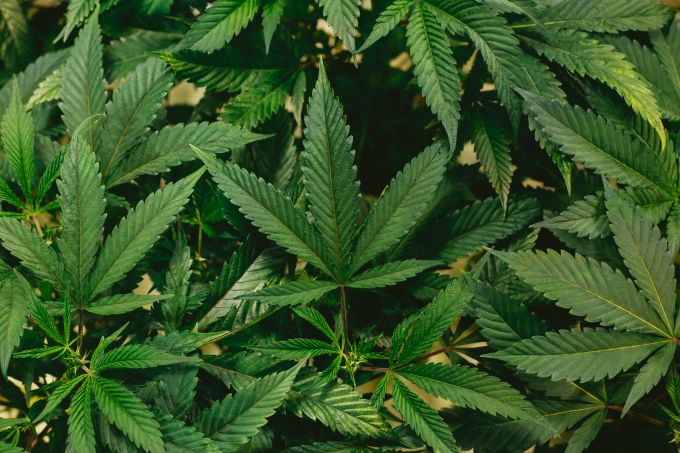
What is Delta 9?
THC, or delta-9-tetrahydrocannabinol (delta 9 THC), is the primary psychoactive cannabinoid molecule in cannabis—in other words, delta 9 is what gets you high when you use weed. Although the compound is famous for its buzzy effects, THC is only one of more than 500 different substances—including over 100 different cannabinoids—present in cannabis.
A wonderfully versatile compound, THC can be ingested in many ways:
- Inhalation: THC can be inhaled through smoking, vaping, or dabbing, and it's the fastest way to feel the psychoactive effects of the plant.
- Oral ingestion: Taking Delta 9 by mouth, whether in the form of edibles or capsules, takes the longest time to kick in, but it also makes the effects last the longest.
- Topicals: THC can sometimes be included in skincare products like lotions or oils. Usually, topical application is localized and has no psychoactive effects. Instead, it may be helpful in managing pain and inflammation.
- Sublingual administration: Delta 9 can be consumed by placing an oil or tincture under the tongue for absorption; after vaping, this is one of the quickest delivery methods.
Benefits of Delta 9
THC works by stimulating the release of dopamine, a neurotransmitter that causes feelings of euphoria. Although the effects of THC are different for everyone, the compound is usually associated with:
- Feelings of relaxation and euphoria
- Increased appetite
- Heightened sensory perception
- Altered perception of time
Although THC is very commonly used recreationally, it also has a number of medicinal uses. Modern scientific research is still relatively fresh, but marijuana has been used for medicinal purposes for thousands of years.
According to research, some ailments THC may be able to help with include:
- Anxiety
- Depression
- Inflammation
- Insomnia
- Nausea
- Pain
- Loss of appetite
Risks of Delta 9
While studies backs up delta 9's many potential benefits, evidence of the compound's adverse effects also exist. Sure, we're all familiar with the dry mouth and red eyes that smoking leaves us with, but research suggests that the risks of delta 9 are much greater than those small discomforts.
Some of delta 9's potential risks include:
- Disconnected thoughts
- Panic reactions
- Heightened anxiety
- Disturbing changes in perception
- Delusions and hallucinatory experiences
That said, delta 9's long term effects on the human psyche and cognition are not known, but the World Health Organization (WHO) has proposed that delta 9 be rescheduled under the United Nation Convention of Psychotropic Drugs, as it does not constitute a substantial risk to users and its abuse is hardly reported.
The History of THC
Hemp is commonly regarded as one of the earliest plants to be cultivated by humans—groovy, right? But as cool as that may sound, humans cultivating hemp thousands of years ago doesn't mean that ancient settlers were puff, puff, passin' and sitting around and theorizing about the true origins of the wheel.
Cannabis in Asia
Cannabis was cultivated in Japan since the pre-Neolithic period for fibers and used as a food source. The verdict is still out on whether it was used for its psychoactive elements. Archaeologists date China's use of the plant to the Neolithic Age, with hemp imprints being found on pottery dating to the 5th millennium BC. Later, the Chinese would go on to use hemp as a resource to make clothes, shoes, rope, and even an early form of paper. Hindus believed the god Shiva to consume cannabis, and it has remained a part of Hindu practice and culture since.
Herodotus, the famous classical Greek historian, reported that the inhabitants of Scythia often inhaled the smoke of hempseed, both for rituals and their recreational pleasures. Although hemp is thought to have originated in Central Asia due to an overwhelming amount of evidence, its uses are well-documented around the world.
Cannabis Introduced to Africa
Cannabis is theorized to have been introduced to Africa by Indian Hindu travelers. In fact, smoking pipes unearthed in Ethiopia carbon-dated back to 1320 AD were found to contain traces of cannabis. It was already popular among indigenous peoples in South Africa prior to European settlement in the Cape in 1652. By the 1850s, Swahili traders had introduced cannabis from the east coast of Africa to the Congo Basin in the west.
Cannabis in the West
Spaniard conquerors brought industrial hemp to the Western Hemisphere and cultivated it in Chile in the mid-1500s. Hemp is thought to have popped up in North America in the early 1500s, as Hernan Cortes invaded Mexico. One of his Spanish soldiers began successfully growing hemp in the area, but by 1550 a Spanish governor had restricted production because locals were using the crop to get high instead of making rope.
Up north in the early 1600s, Gabriel Archer observed it being grown by Powhatan natives in what is now Richmond, Virginia. During Napoleon's invasion of Egypt in 1798, alcohol was unavailable due to Egypt being under Islamic rule, and his troops resorted to hashish, to which they reportedly took a liking.
Cannabis was known to be a part of the culture of enslaved Africans in Brazil. After the abolition of slavery in British colonies in 1834, it is believed that indentured servants from India brought cannabis to the Caribbean, where the term "ganja" was popularized, especially in Jamaica—a country famous for its relationship with cannabis even today.

What Happened?
So, if humans have been reaping the benefits of cannabis for millennia, how come it's so controversial today? Why has cannabis been targeted by anti-drug propaganda and painted in the public eye as an enemy "gateway drug" as opposed to a legitimate resource with a rich history?
The ugly truth is marijuana became the subject of discriminatory campaigns against immigrants in the United States.
Medical professionals and scientists began to develop a curiosity about the plant's medicinal benefits in the 19th century, and pharmaceutical companies across the United States and Europe began creating and marketing cannabis-based medicines for a plethora of ailments. Although the rise of pain relievers as we know them today certainly hurt marijuana's popularity, the real reason the plant became demonized in the United States was its perceived link to Mexican immigrants.
At the turn of the 20th century, as the Mexican Revolution roared through Mexico, thousands of people sought to escape the plights of war by migrating to the north. Seeking a better life for themselves and their offspring, Mexican immigrants also brought with them their cannabis practices, which quickly became popularized within American society.
Due to the political and economic turmoil of the time and the rampant xenophobia against Mexican immigrants in the eyes of American politicians, marijuana was falsely rebranded as a dangerous drug in hopes of tarnishing the reputation of immigrants.
In the 70s, however, the hippie movement once again uplifted the plant. Catching the attention of doctors and scientists looking to explore its medical benefits, cannabis slowly began to make its well-deserved comeback. Today, medical marijuana is legal in 37 states and recreationally legal in 19!
One of the greatest technological and legal advances of the plant was the hemp industry boom following the legalization of hemp under the 2018 Farm Bill. Although marijuana is gradually making a comeback, it's not as widespread as that hemp-derived cannabinoids. Upon signing the Farm Bill into law, the United States government made a clear distinction between marijuana and hemp—although the two plants are types of cannabis, hemp plants contain 0.3% THC or less, and marijuana plants contain more.
This law, which legalized hemp and all of its derivatives at a federal level, is the only reason we've got hemp-derived delta 9 on sale today!
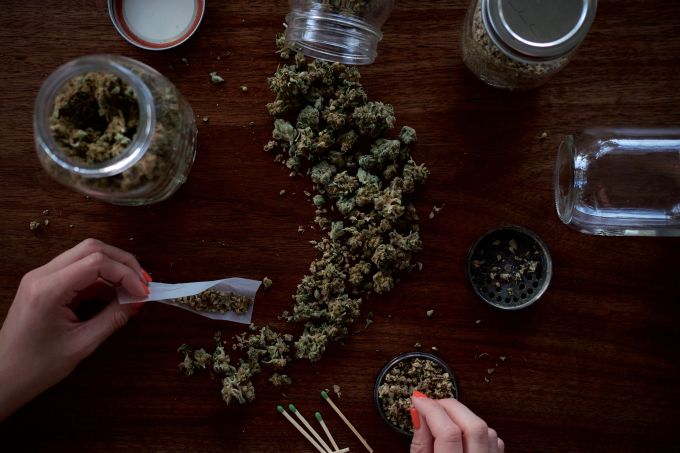
How is Delta 9 Derived from Hemp?
Delta 9 is the compound you probably think of when someone mentions the term "weed" or "pot." Ever since weed became popularized, its psychoactive effects have been attributed to the cannabinoid delta 9 THC.
But how do manufacturers produce hemp-derived delta 9? There are two popular ways to get hemp-derived delta 9.
Isomerization
"Isomerization" occurs when a manufacturer converts hemp-derived CBD into delta 9 with a little chemistry. This is the same method manufacturers use to produce delta 8, delta 10, and other popular cannabinoids. Delta 9 that is obtained in this way is referred to as hemp-derived, not hemp-extracted.
Hemp-Extracted Delta 9
The second most common method to get delta 9 from hemp involves taking delta 9 extract from the plant. Extraction is an attractive way to get the compound because it doesn't require chemical manipulations, leaving delta 9 in its original state from the start to the end of the process.
Hemp-Derived Delta 9 vs. Marijuana Delta 9
In short, there is no difference between hemp-derived delta 9 and regular delta 9 except for their source and subsequent legal status. Their chemical composition is identical, and their effects are virtually the same.
The only thing that differentiates hemp-derived delta 9 and regular marijuana is the government's 0.3% THC cutoff; so, if it contains less than that, it's hemp, and if not, it's marijuana. Other than that, delta 9 derived from hemp and ordinary delta 9 are the exact same molecule, meaning they will both have the same psychoactive effects.
Is Delta 9 Legal?
It depends on where it comes from (and where you are).
Under the 2018 Farm Bill, the United States government made a clear differentiation between marijuana and hemp. While they're both part of the cannabis plant family, the two terms are not interchangeable. While hemp is classified as cannabis plants that contain 0.3% THC or less, anything over 0.3% THC is legally considered marijuana.
Marijuana remains a federally illegal drug, considered a Schedule I Substance under the Controlled Substances Act. States, however, have begun to decriminalize and legalize weed in the past few decades. Currently, recreational marijuana is legal for recreational use in 19 states and allowed for medicinal use in 37 states.
Hemp, on the other hand, is considered legal under the Farm Bill of 2018, which made it and all of its derivatives legal on a federal level. This is the reason we have other compounds like delta 8 and HHC as well! That said, states have also begun to enact restrictions on hemp-derived cannabinoids, so even though hemp is federally legal, it may not be legal to buy in your state. All in all, delta 9 that comes from hemp is federally legal to sell and distribute on a federal level, but delta 9 that comes from marijuana is not.
Hemp Derived Delta 9
How Long Does Delta 9 Stay in Your System?
The amount of time delta 9 may linger in your system largely depends on the amount you take and the frequency in which you use it. Unfortunately, there is no accurate way to determine the compound's duration in the body because everyone processes cannabinoids in unique ways.
It all depends on how fast your body clears out THC metabolites—the small molecules formed after the liver breaks down and metabolizes THC. As far as we know, over 80 different metabolites form from ingesting THC, and they're gradually discarded through feces and urine.
Many factors affect how long THC will remain detectable in your system.
Frequency of Use
How often you consume THC is a very significant factor when it comes to how long the compound can be traced. THC metabolites tend to stay longer in those who enjoy cannabis frequently, so the window of time can be anywhere from days to months before you pass a drug test.
For the infrequent indulgers who enjoy delta 9 every few days, it could take several weeks to clear the THC metabolites from your urine.
Remember, this is not an exact science, and these are simply estimates. If you know you have a drug test in your future, act accordingly.
Age & Physiology
Your age may play a role in determining the amount of time it takes your body to metabolize THC.
Additionally, your liver plays a huge role in breaking down THC; for it to process them correctly, it must have a higher number of enzymes to metabolize cannabinoid compounds. This means that if you were born with a liver that doesn't produce enough enzymes or got older, THC metabolites might remain in your system for longer.
Another commonly overlooked factor is weight. A person with a high body mass index will take longer to flush out THC metabolites because they also get stored in fat tissue.
Potency
Consuming products with higher concentrations of THC will undoubtedly create more THC metabolites, which means that they will remain in your system for a longer duration.
It is speculated that smoking flower won't linger in your system for as long as edibles with higher percentages of THC, but further research is still necessary to prove this claim.
Does Delta 9 Stay in Your System Longer than Delta 8?
Delta 8 is an isomer of delta 9, meaning it takes your body around the same amount of time to break down the compound into metabolites and subsequently flush them out. Delta 8 stays in your system for about as long as delta 9, but sometimes it can be flushed out in less time.
Because drug tests look for THC metabolites, not just delta 9 metabolites, ingesting delta 8 will likely trigger a positive drug test.
Another important aspect to consider when comparing the durations of delta 9 and delta 8 in the body is the potency of the product. Products with higher potencies and concentrations tend to linger for longer than those with lower concentrations. So, if you know you've got a drug test coming up, it is recommended that you ingest small doses of low-potency delta 8 or delta 9 product,
Or, better yet, if you know you've got a drug test coming up, take the few weeks leading up to it as the opportunity to take a tolerance break!
Does Delta 9 Show Up on a Drug Test?
Yes.
Remember how we said hemp-derived delta 9 and regular THC were chemically identical, and that's why you can get all the buzzy effects of weed in a federally legal way? Well, here's the downside.
Drug tests are designed to detect THC metabolites, and hemp-derived delta 9 is so similar to regular delta 9 that there is no way for the test to differentiate their metabolites.
If you consume hemp-derived delta 9 THC, it will trigger a THC-positive result on a drug test.
Whether you pass or fail a drug test depends on the answer to the question, how long does delta 9 stay in your system? Although there isn't an exact answer to this question, the previously mentioned factors should give you an idea of the amount of time it may take you to flush out your system.
It may be a good idea to buy home tests and test yourself in the days prior to the drug test to ensure a desirable result. Again, if you have a drug test coming up, it's probably best to avoid hemp-derived THC until the coast is clear.
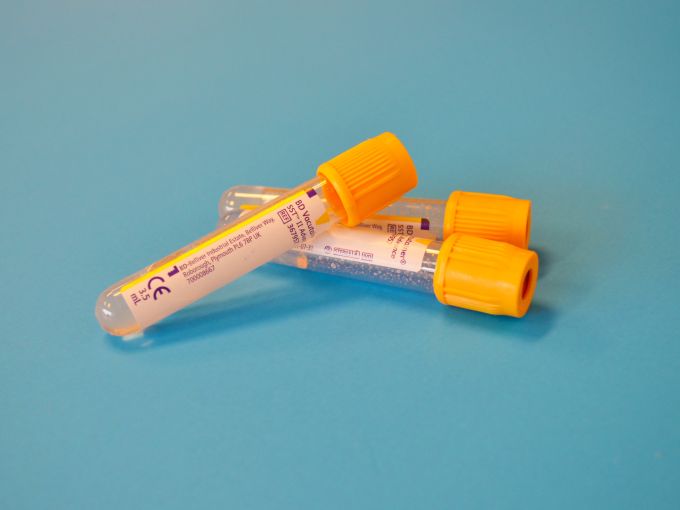
How to Dose Delta 9
How to dose delta 9 depends on the type of product you use and the concentrations of delta 9 in said products. To check concentrations, look and see how much delta 9 is in each container and then in each serving. A common way of using delta 9 is by taking portions of servings as opposed to full servings, which may require a little extra mental math. Don't worry, though—these calculations are very easy!
Delta 9 THC has many benefits and properties that can be useful for a plethora of people. That said, there are some things it would be wise to consider before consuming delta 9.
First things first, you should consider whether delta 9 is the right compound for you. Do your research on the full extent of its properties and effects.
When you do begin to consume delta 9, it's always best to start with a low dose and build it up to what feels comfortable for you. Remember, you can always take more delta 9, but once you cross the threshold between a good trip and overdoing it, there's no going back!
Always follow packaging guidelines and don't exceed the maximum recommended dosage.
Delta 9 gummies are an especially popular way to consume delta 9, and due to the amount of time they take to kick in, it's very easy to ingest too much.
Although dosing is usually dependent on factors like rate of metabolism, body weight, and strength of product—and delta 9 hits everyone differently—here's a quick dosing guideline for those looking for some recommendations.
Low Dose
-
1-5 mg is considered a small dose. Taking this much delta 9 will likely help with stress relief, anxiety relief, and pain management. This is the perfect dosage for anybody new to cannabinoids and worried about tolerance.
Medium Dose
-
An average dose between 5-25 mg will be felt a lot more throughout your body and may give you waves of euphoria. If you already have some experience with edibles or want to feel a little something stronger than a smaller dose, this is the tier for you.
High Dose
-
A high dose of delta 9 is anywhere between 25-50 mg. At this point, you'll feel the heavy effects of the compound. In other words, you'll get hella stoned.
Heavy Dose
-
If you're the intense type who really wants to feel delta 9 in its full force, a heavy dose of 100+ mg may be for you. This tier is usually reserved for seasoned cannabis users who want to push their own limits.
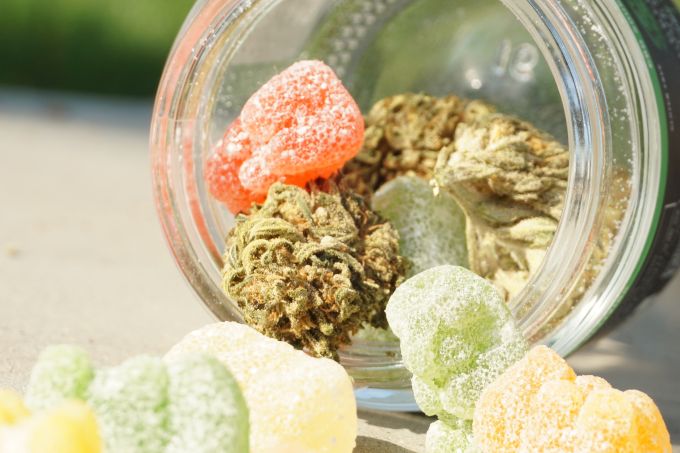
What's the Difference Between Delta 9 and Delta 8?
Delta 8 THC is a hemp-derived cannabinoid sourced from CBD. While CBD doesn't have intoxicating effects, scientists are able to manipulate its chemical structure to create delta 8, which does have buzzy benefits.
In essence, delta 8 is just a milder analog of delta 9. They have a similar chemical structure and similar psychoactive effects, with the exception that delta 8 is about half as strong as delta 9. This means that delta 8 will make you half as high as delta 9—or that you need twice the amount of delta 8 to feel as high as with delta 9!
Delta 8 products have been growing in fame since they emerged in the cannabinoid market, and some argue that it may be delta 9's only worthy opponent in popularity. With the rise of hemp-derived delta 9, however, the verdict is still out on whether or not delta 8 will keep its crown.
Although delta 8 and delta 9 are chemically similar, they are not identical. While delta 8 has a double bond on the eighth carbon atom of its molecular structure, delta 9 has a double bond on the ninth carbon atom—hence their names.
Take a look at this chart to better visualize the differences and similarities between the two compounds:
| Similarities | Differences |
|---|---|
|
|
Delta 9: Final Thoughts
Delta 9 is the most classic way to buzz. Cannabis has been a part of human cultures and histories for thousands of years, but an unfortunate twist of events has vilified the compound in the last century and a half.
Luckily, hemp-derived delta 9 is the best new way to enjoy one of the oldest crops in history in a safe, legal—and frankly super exciting—way. And now, with all your questions answered, from what is delta 9 and the effects of THC to answers to the question, "how long does delta 9 stay in your system?" you're hopefully equipped with the necessary information to have a fun, relaxing experience with the best compound around.
So, grab some gummies (and dose them correctly!) to reach newer and better highs with Diamond CBD.

